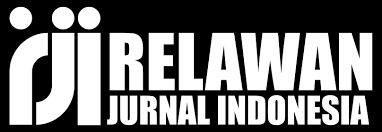DAMPAK KEBIJAKAN FISKAL TERHADAP OUTPUT DAN INFLASI
DOI:
https://doi.org/10.61722/jiem.v2i1.851Abstract
This research analyzes the impact of fiscal policy on output and inflation in a microeconomic context. Through a quantitative approach, we use econometric models to evaluate the response of economic sectors' output and inflation rates to changes in fiscal policy. Our findings reveal that fiscal policy has a significant influence on economic growth and inflation rates. These results provide important insights for policy makers to optimize fiscal policy to achieve a sustainable balance between economic growth and price stability. The empirical results show that there is a cointegration relationship between government spending and taxes on output in the long run. In the long term, taxation has a positive impact on economic growth while government spending does not. Short-run adjustments show that the shock of increasing government spending has a positive impact on output while the shock of increasing taxes has a negative impact. The more dominant influence of government spending on output in the short term compared to taxes shows that this policy is still quite effective in stimulating economic growth, especially during a recession. Meanwhile, an increase in government spending causes a decrease in inflation, while an increase in taxes causes an increase in inflation. This study also shows that there is no fiscal policy discretion carried out by the government.
References
Akitoby, B. et al., 2004, The Cyclical and Long_term Behavior of Government Expenditures in Developing Countries, IMF Working Paper, WP/04/02. Baldacci, E., 2009,
Neither Sailing Against the Wind, Nor Going with the Flow: Cyclicality of Fiskal Policy in Indonesia, IMF Country Report No. 09/231. Blanchard, O.J., 1990,
Suggestions for a New Set of Fiskal Indicators, OECD Economics Department Working Papers, No.79, OECD Publishing. Castro, Francisco De, 2003,
The Macroeconomic Effects of Fiskal Policy in Spain, Banco de Espana Working Paper No. 0311 Chalk, Nigel A., 2002,
Structural Balances and All That: Which Indicators to Use in Assessing Fiskal Policy, IMF Working Paper, WP/02/101. Fatas, Antonio & Ilian Mihov, 2003,
The Case for Restricting Fiskal Policy Discretion, INSEAD and CEPR. Fu, Dong et all, 2003,
Fiskal Policy and Growth, Federal Reserve Bank of Dallas Working Paper No. 0301 Hemming, R., M. Kell & S. Mahfouz, 2002,
The Effectiveness of Fiskal Policy in Stimulating Economic Activity Review of the Literature, IMF Working Paper, WP/02/208. Hermawan, D. & Anella Munro, May 2008,
Monetary-Fiscal Interaction in Indonesia, Asian Office Research Paper, Bank for International Settlement. Judson, Ruth & Athanasios Orphanides, 1999,
Inflation, Volatility and Growth, International Finance, Vol. 2 No.1. Krusec, Dejan, 2003,
The Effects of Fiskal Policy on Output in A Structural VEC Model Framework: The Case of Four EMU and Four Non √EMU OECD Countries. Lendvai, Julia, , 2007,
The Impact of Fiskal Policy in Hungary, ECFIN Country Focus, Volume 4 Issue 11 Mountford, Andrew & Uhlig, Harald, 2008,
What Are The Effects of Fiskal Policy Shock, National Bureau of Economic Research Working Paper 1551 Perotti, Roberto, 2002,
Estimating The Effects of Fiskal Policy in OECD Countries, European Central Bank Working Paper No. 168. Rother, Philipp C., 2004,
Fiskal Policy and Inflation Volatility, European Central Bank Working Paper, No. 317. Shaheen, Rozina & Turner, Paul, 2009,
Measuring The Dynamic Effects of Fiskal Policy Shocks in Pakistan http://www.pide.org.pk/psde/25/pdf/Day3/Rozina%20Shaheen.pdf
Buletin Ekonomi Moneter dan Perbankan, April 2012
VAR Lag Order Selection Criteria Endogenous variables: LTSPNDRLSA, LGDPRLSA, LTTAXRLSA, LCPI, LDEP3 Exogenous variables: C Sample: 1990Q1 2009Q4 Included observations: 73
Downloads
Published
Issue
Section
License
Copyright (c) 2023 JURNAL ILMIAH EKONOMI DAN MANAJEMEN

This work is licensed under a Creative Commons Attribution-ShareAlike 4.0 International License.












